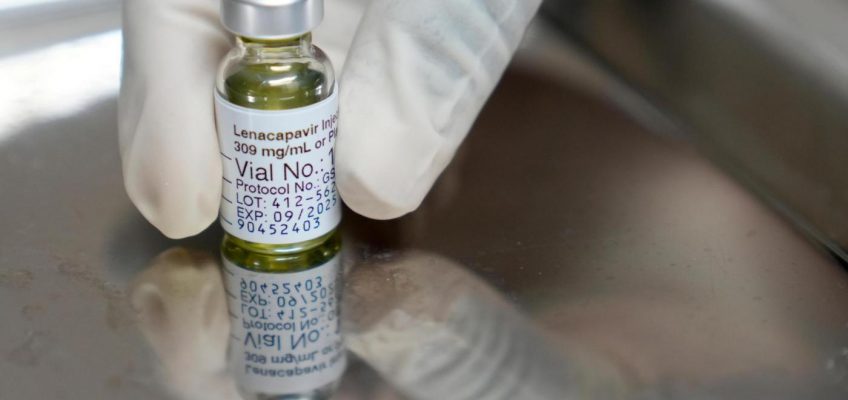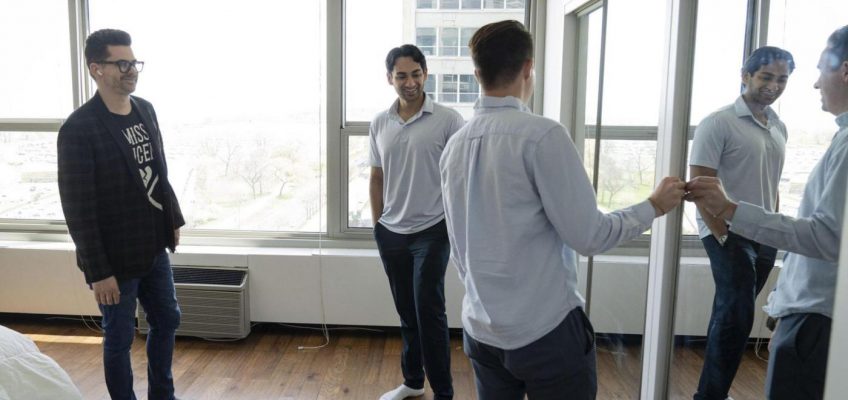Minnesota-based UnitedHealthcare CEO Brian Thompson was fatally shot outside a hotel in midtown Manhattan on Wednesday.
Brian Thompson
Here’s what we know so far about this breaking news:
The shooting
The 50-year-old executive was shot around 6:45 a.m. on Wednesday as he walked alone to the New York Hilton Midtown from a nearby hotel, police said.
Thompson was struck at least once in the back and once in the calf, authorities said. He was taken to a hospital, where he was pronounced dead.
The suspect
The gunman appeared to be “lying in wait for several minutes” before approaching Thompson from behind and opening fire, New York City Police Commissioner Jessica Tisch said.
The suspect, dressed in a hooded sweatshirt and carrying a distinct gray backpack, then fled on foot down an alleyway before pedaling an e-bike into Central Park a few blocks away.
The shooter was still at large as of Wednesday afternoon, sparking a search that included police drones, helicopters and dogs.
This combination of images provided by the New York City Police Department shows the suspect sought in the the killing of UnitedHealthcare CEO Brian Thompson outside a Manhattan hotel where the health insurer was holding an investor conference, Wednesday, Dec. 4, 2024. (New York City Police Department via AP)
Police issued a poster showing a surveillance image of the suspect pointing what appeared to be a gun and another image that appeared to show the same person on a bicycle. Police offered a reward of up to $10,000 for information leading to an arrest and conviction.
Unknown motive
Police have not yet established a motive.
“Many people passed the suspect, but he appeared to wait for his intended target,” Commissioner Tisch said, adding that the shooting “does not appear to be a random act of violence.”
The hotel
The Hilton is in a bustling part of Manhattan, a short walk from tourist sites such as the Museum of Modern Art and Rockefeller Center, and often dense with tourists and office workers on weekday mornings.
Part of the block where the shooting took place was cordoned off with police tape, with a large contingent of police officers at the scene. Many security cameras are nearby.
Shaken
The killing happened about four blocks from where tens of thousands of people are set to gather Wednesday night for the annual Rockefeller Center Christmas tree lighting.
Police sought to reassure New Yorkers and promised extra security for the tree lighting, which will go on as scheduled.
“We’re encouraging New Yorkers to go about their daily lives and their daily business but to be alert,” NYPD Chief of Department Jeffrey Maddrey said.
Thompson’s widow
Thompson’s wife, Paulette Thompson, told NBC News that he had been receiving threats.
“There had been some threats,” she said in a phone call to NBC News. “Basically, I don’t know, a lack of coverage? I don’t know details. I just know that he said there were some people that had been threatening him.”
When reached by phone, his mother-in-law, Paulette Reveiz, told the New York Daily News that his family was stunned.
“The only thing I can say is he’s a good man. I can’t say anything else,” said Reveiz. “We’re still in shock.”
UnitedHealth Group Inc.
UnitedHealthcare is the insurance arm of the health care giant UnitedHealth Group Inc., which is based in Minnetonka.
United is the largest provider of Medicare Advantage plans, the privately run versions of the U.S. government’s Medicare program for people age 65 and older.
The company also sells individual insurance and administers health insurance coverage for thousands of employers and state-and federally funded Medicaid programs.
Annual meeting
The Minnesota-based company was scheduled to have its annual meeting with investors in New York City to update Wall Street on the company’s direction and expectations for the coming year, according to a company media advisory.
The company ended the conference early in the wake of Thompson’s death.
“I’m afraid that we — some of you may know we’re dealing with a very serious medical situation with one of our team members,” a company official told attendees, according to a transcript. “And as a result, I’m afraid we’re going to have to bring to a close the event today. … I’m sure you’ll understand.”
A Minnesota family
Thompson lived with his family in Minnesota.
According to his LinkedIn profile, Thompson graduated as valedictorian from the University of Iowa in 1997 with a bachelor’s degree in business administration and accounting, and worked at accounting firm Pricewaterhouse Coopers from 1997 to 2004.
A long tenure
Thompson had run the insurance arm of health care giant UnitedHealth Group Inc. since 2021 and had worked at the company for two decades.
Thompson began at the company in 2004, the New York Daily News reports, working on mergers and acquisitions.
He went on to become chief financial officer for UnitedHealthcare Employer & Individual, Community & State and Medicare & Retirement, then chief executive officer of the Medicare & Retirement division.
Just before becoming CEO, the Daily News reports, Thompson was chief executive officer of the company’s government programs. That division included Medicare and state programs designed to provide care to the uninsured.
The portfolio Thompson managed generated $74 billion in revenue in the most recent quarter, making it the largest subsidiary of UnitedHealth Group. His $10.2 million annual compensation package, including salary, bonus and stock options awards, made him one of the company’s highest-paid executives.
Still, Thompson had little name recognition beyond the industry.
Even to investors who own its stock, the Associated Press reports that the public face of the parent company belonged to CEO Andrew Witty, a knighted British triathlete who has testified before Congress.
Related Articles
Powell: Fed’s independence from politics is vital to its interest rate decisions
Don’t overdo it: Here’s what not to fix when selling a house
3 ways to earn an extra $500 for the holidays
Australia is banning social media for people under 16. Could this work elsewhere — or even there?
Trump nominates cryptocurrency advocate Paul Atkins as SEC chair
Condolences
Minnesota Gov. Tim Walz tweeted that the state is “sending our prayers to Brian’s family and the UnitedHealthcare team.”
“This is horrifying news and a terrible loss for the business and health care community in Minnesota,” the Democrat wrote.
Company statement
“We are deeply saddened and shocked at the passing of our dear friend and colleague Brian Thompson, the CEO of UnitedHealthcare,” the insurer’s parent company, UnitedHealth Group, said in a statement.
“Brian was a highly respected colleague and friend to all who worked with him,” the company said. “We are working closely with the New York Police Department and ask for your patience and understanding during this difficult time.”
A grieving family and community
KARE-11 reports that Thompson leaves behind his wife, Paulette, and two sons who attended Wayzata High School; one is a current student while the other is a 2024 graduate, the station reports.
“School officials say the Wayzata H.S. community is heartbroken, and promised support for both students and staff members impacted by the ‘devastating event,’ KARE reports.




